Click to view our Accessibility Statement or contact us with accessibility-related questions


























Are Enthusiast Products Expenses or Assets?

search
close
Sort by: Newest
keyboard_arrow_down
Freets
25
Jun 4, 2016
This is exactly the philosophy that l used (use) to justify my audiophile journey. Purchased most of my equipment "barely" used...have sold most for what I paid for it and keep what I love. Also scaled up in price and quality as my convenience grew in both my preference, tastes, equipment knowledge and ability to resell confidently (and more importantly my wife's confidence). My main rig retails for over $5K (CAD)...I paid $3k for all less than a year old equipment...confident I can resell for the exact amount if I choose over the next couple of years. So I do see it as an asset with a decent,shelf life.

Will
8470
Chief Product Officer
Jun 1, 2016
GonzoTGreatHey Gonzo,
No problem, I have a good time thinking about this kind of stuff, always fun to find someone equally interested in the discussion.
OCR stands for Optical Character Recognition, generally you'll hear it in reference to scanners that can turn written letters into editable text. While that's the definition and official use of the term, it's an acronym that gets thrown around whenever we're discussing software that recognizes specific objects/details within images.
In this situation, it would be something like, take a straight-on picture of the nib. Is it bent in a weird way? Are the tines split too much? The software would be able to recognize such things and either make or help inform a decision around condition grading.
On the whiskey front, not to get us on a new tangent, but I recently picked up some Yamazaki 12 and it's overtaken Glenlivet 18 as my favorite highland/smooth whiskey. Would recommend if you can find a reasonably priced bottle.
When will other communities get discussions? Not sure TBH, depends on the response we get in these communities. That said, if you want to make a case for a particular community, hit up my colleagues Kunal, Mike Wilson, and Alex Peterkin, their team owns this project : )
Best.
No problem, I have a good time thinking about this kind of stuff, always fun to find someone equally interested in the discussion.
OCR stands for Optical Character Recognition, generally you'll hear it in reference to scanners that can turn written letters into editable text. While that's the definition and official use of the term, it's an acronym that gets thrown around whenever we're discussing software that recognizes specific objects/details within images.
In this situation, it would be something like, take a straight-on picture of the nib. Is it bent in a weird way? Are the tines split too much? The software would be able to recognize such things and either make or help inform a decision around condition grading.
On the whiskey front, not to get us on a new tangent, but I recently picked up some Yamazaki 12 and it's overtaken Glenlivet 18 as my favorite highland/smooth whiskey. Would recommend if you can find a reasonably priced bottle.
When will other communities get discussions? Not sure TBH, depends on the response we get in these communities. That said, if you want to make a case for a particular community, hit up my colleagues Kunal, Mike Wilson, and Alex Peterkin, their team owns this project : )
Best.

Armaegis
127
Jun 1, 2016
GonzoTGreatHey guys, as fascinating as this talk is about "value validation" for secondhand products, logistic market matching, etc... and all the brainstorming that's being bantered about... you realize that an intermediary system is already in place for this sort of thing right? It's this funny thing called "money". Yes true, it's an extra step, but it simplifies the bartering system to a (admittedly arbitrary at times) shared commodity that is commonly valued by all parties involved.

GonzoTGreat
756
Jun 1, 2016
WillHi @Will,
Thanks so much for your incredibly detailed and well-written response. I hope our exchange - out in the open - adds value to thread and the community.
Your post helped me see it's not nearly as complicated to set up an enthusiast barter system as I had imagined, though still a massive, daunting undertaking. This was definitely not something I figured was anywhere in anyone's todo list for the foreseeable future, but I figured I'd ask.
Also, what's OCR?
The JW example is appropriate. JW Blue is significantly better than Black (I also like my whiskey). I can tell the difference when drinking them neat, but less so as they are adulterated (with ice or mixers). JW Blue may have a unique subtlety. An attuned enthusiast could make an educated decision as to whether the price difference was worth it. The price difference is probably as a result of the difference in quality AND label color - blue dye costs so much more ;-).
If someone is perfectly happy their ballpoint pen, the smoothness of a fountain pen may be noticeable but not worth the price difference. And when we go beyond $1,000, we're talking about aesthetics and brand almost exclusively.
Cheers.
ps . When is this kind of discussion board coming to other communities (writing?).
Thanks so much for your incredibly detailed and well-written response. I hope our exchange - out in the open - adds value to thread and the community.
Your post helped me see it's not nearly as complicated to set up an enthusiast barter system as I had imagined, though still a massive, daunting undertaking. This was definitely not something I figured was anywhere in anyone's todo list for the foreseeable future, but I figured I'd ask.
Also, what's OCR?
The JW example is appropriate. JW Blue is significantly better than Black (I also like my whiskey). I can tell the difference when drinking them neat, but less so as they are adulterated (with ice or mixers). JW Blue may have a unique subtlety. An attuned enthusiast could make an educated decision as to whether the price difference was worth it. The price difference is probably as a result of the difference in quality AND label color - blue dye costs so much more ;-).
If someone is perfectly happy their ballpoint pen, the smoothness of a fountain pen may be noticeable but not worth the price difference. And when we go beyond $1,000, we're talking about aesthetics and brand almost exclusively.
Cheers.
ps . When is this kind of discussion board coming to other communities (writing?).

Armaegis
127
Jun 1, 2016
GonzoTGreatHey guys, as fascinating as this talk is about "value validation" for secondhand products, logistic market matching, etc... and all the brainstorming that's being bantered about... you realize that an intermediary system is already in place for this sort of thing right? It's this funny thing called "money". Yes true, it's an extra step, but it simplifies the bartering system to a (admittedly arbitrary at times) shared commodity that is commonly valued by all parties involved.

Will
8470
Chief Product Officer
Jun 1, 2016
GonzoTGreatHey Gonzo,
No problem, I have a good time thinking about this kind of stuff, always fun to find someone equally interested in the discussion.
OCR stands for Optical Character Recognition, generally you'll hear it in reference to scanners that can turn written letters into editable text. While that's the definition and official use of the term, it's an acronym that gets thrown around whenever we're discussing software that recognizes specific objects/details within images.
In this situation, it would be something like, take a straight-on picture of the nib. Is it bent in a weird way? Are the tines split too much? The software would be able to recognize such things and either make or help inform a decision around condition grading.
On the whiskey front, not to get us on a new tangent, but I recently picked up some Yamazaki 12 and it's overtaken Glenlivet 18 as my favorite highland/smooth whiskey. Would recommend if you can find a reasonably priced bottle.
When will other communities get discussions? Not sure TBH, depends on the response we get in these communities. That said, if you want to make a case for a particular community, hit up my colleagues Kunal, Mike Wilson, and Alex Peterkin, their team owns this project : )
Best.
No problem, I have a good time thinking about this kind of stuff, always fun to find someone equally interested in the discussion.
OCR stands for Optical Character Recognition, generally you'll hear it in reference to scanners that can turn written letters into editable text. While that's the definition and official use of the term, it's an acronym that gets thrown around whenever we're discussing software that recognizes specific objects/details within images.
In this situation, it would be something like, take a straight-on picture of the nib. Is it bent in a weird way? Are the tines split too much? The software would be able to recognize such things and either make or help inform a decision around condition grading.
On the whiskey front, not to get us on a new tangent, but I recently picked up some Yamazaki 12 and it's overtaken Glenlivet 18 as my favorite highland/smooth whiskey. Would recommend if you can find a reasonably priced bottle.
When will other communities get discussions? Not sure TBH, depends on the response we get in these communities. That said, if you want to make a case for a particular community, hit up my colleagues Kunal, Mike Wilson, and Alex Peterkin, their team owns this project : )
Best.

Will
8470
Chief Product Officer
Jun 1, 2016
GonzoTGreatLots of questions, I'll do my best to give clear answers.
Does something like that (a p2p, barter focused, marketplace with value validation) exist today? Not that I know of. Nobody's really been in a position where it'd make sense to build such a thing. Medium of exchange is a pretty big thing that most business people have bought into, but as with all things, it was created based on certain requirements and assumptions.
Bartering was an inefficient way of exchanging value because there wasn't a good matchmaking system in place. If you have a heard of goats, and you want some bread to eat, you'd walk to the nearest town and hope the baker was looking for goat products. If the baker is not interested in goats or goat accessories, you're SOL because you can't spend two days walking to the next village on the off-chance their baker is interested in goat products.
Today, matchmaking can be solved via software. You have a $500 knife and you're interested in $500 headphones? Here are the first 10 people we found that have $500 headphones and want a $500 knife. EZ.
Logistics are solved by UPS/Fedex/USPS and Paypal/Venmo/Square. You were successfully matched with someone that's got a $500 headphone to trade for your $500 knife? NP, send money via internet, ship product via multitude of shipping providers, easiest day of your life.
The only remaining question is, how do we make sure folks are correctly representing the value of items they're trading? I think there's a clever solution based on a reputation system (misrepresent the value of a product and get shunned), some basic OCR, and a 2-3 person team to handle disputes when the scale gets large enough. It's a problem that lots of companies have already solved, with a slight additional twist.
Now, the question of "will Massdrop do this?" is not something I have the power to answer. I don't make choices for what we make or don't make for the website. Creating something like this would be a big undertaking, and we've got a long list of features and improvements to roll out over the course of this year. If it was something we were going to consider, that consideration wouldn't happen for some time.
For the question about Audiophiles, and the limit of "most consumers" ability to appreciate/hear the difference with high quality components, I think it's mostly psychological, consumers need guidance to be shown what to look for. Give a frat bro some JW Red, then give him some JW Blue. He'll probably notice the Blue is smoother, but if you asked him "How much more would you pay for Blue over Red?" his answer's probably not 1000%.
Now, if someone was there, explaining the nuance'd flavors of Blue, pointing them out to the frat bro, showing exactly how the experience is better, 1000% might not seem so crazy.
So the short answer is, unless you've experienced some serious hearing damage, I don't think you hit massively diminishing returns until you're past HD800s (~$1000), provided you love music and are willing to dedicate the time to pay it proper attention.
Does something like that (a p2p, barter focused, marketplace with value validation) exist today? Not that I know of. Nobody's really been in a position where it'd make sense to build such a thing. Medium of exchange is a pretty big thing that most business people have bought into, but as with all things, it was created based on certain requirements and assumptions.
Bartering was an inefficient way of exchanging value because there wasn't a good matchmaking system in place. If you have a heard of goats, and you want some bread to eat, you'd walk to the nearest town and hope the baker was looking for goat products. If the baker is not interested in goats or goat accessories, you're SOL because you can't spend two days walking to the next village on the off-chance their baker is interested in goat products.
Today, matchmaking can be solved via software. You have a $500 knife and you're interested in $500 headphones? Here are the first 10 people we found that have $500 headphones and want a $500 knife. EZ.
Logistics are solved by UPS/Fedex/USPS and Paypal/Venmo/Square. You were successfully matched with someone that's got a $500 headphone to trade for your $500 knife? NP, send money via internet, ship product via multitude of shipping providers, easiest day of your life.
The only remaining question is, how do we make sure folks are correctly representing the value of items they're trading? I think there's a clever solution based on a reputation system (misrepresent the value of a product and get shunned), some basic OCR, and a 2-3 person team to handle disputes when the scale gets large enough. It's a problem that lots of companies have already solved, with a slight additional twist.
Now, the question of "will Massdrop do this?" is not something I have the power to answer. I don't make choices for what we make or don't make for the website. Creating something like this would be a big undertaking, and we've got a long list of features and improvements to roll out over the course of this year. If it was something we were going to consider, that consideration wouldn't happen for some time.
For the question about Audiophiles, and the limit of "most consumers" ability to appreciate/hear the difference with high quality components, I think it's mostly psychological, consumers need guidance to be shown what to look for. Give a frat bro some JW Red, then give him some JW Blue. He'll probably notice the Blue is smoother, but if you asked him "How much more would you pay for Blue over Red?" his answer's probably not 1000%.
Now, if someone was there, explaining the nuance'd flavors of Blue, pointing them out to the frat bro, showing exactly how the experience is better, 1000% might not seem so crazy.
So the short answer is, unless you've experienced some serious hearing damage, I don't think you hit massively diminishing returns until you're past HD800s (~$1000), provided you love music and are willing to dedicate the time to pay it proper attention.

GonzoTGreat
756
Jun 1, 2016
WillHi @Will,
Thanks so much for your incredibly detailed and well-written response. I hope our exchange - out in the open - adds value to thread and the community.
Your post helped me see it's not nearly as complicated to set up an enthusiast barter system as I had imagined, though still a massive, daunting undertaking. This was definitely not something I figured was anywhere in anyone's todo list for the foreseeable future, but I figured I'd ask.
Also, what's OCR?
The JW example is appropriate. JW Blue is significantly better than Black (I also like my whiskey). I can tell the difference when drinking them neat, but less so as they are adulterated (with ice or mixers). JW Blue may have a unique subtlety. An attuned enthusiast could make an educated decision as to whether the price difference was worth it. The price difference is probably as a result of the difference in quality AND label color - blue dye costs so much more ;-).
If someone is perfectly happy their ballpoint pen, the smoothness of a fountain pen may be noticeable but not worth the price difference. And when we go beyond $1,000, we're talking about aesthetics and brand almost exclusively.
Cheers.
ps . When is this kind of discussion board coming to other communities (writing?).
Thanks so much for your incredibly detailed and well-written response. I hope our exchange - out in the open - adds value to thread and the community.
Your post helped me see it's not nearly as complicated to set up an enthusiast barter system as I had imagined, though still a massive, daunting undertaking. This was definitely not something I figured was anywhere in anyone's todo list for the foreseeable future, but I figured I'd ask.
Also, what's OCR?
The JW example is appropriate. JW Blue is significantly better than Black (I also like my whiskey). I can tell the difference when drinking them neat, but less so as they are adulterated (with ice or mixers). JW Blue may have a unique subtlety. An attuned enthusiast could make an educated decision as to whether the price difference was worth it. The price difference is probably as a result of the difference in quality AND label color - blue dye costs so much more ;-).
If someone is perfectly happy their ballpoint pen, the smoothness of a fountain pen may be noticeable but not worth the price difference. And when we go beyond $1,000, we're talking about aesthetics and brand almost exclusively.
Cheers.
ps . When is this kind of discussion board coming to other communities (writing?).

GonzoTGreat
756
Jun 1, 2016
You make some great points I hadn't considered.
Using a third party for evaluation of both items to be "traded" might be a good compromise. Of course, you'd have to find an entity that all parties trusted (the tricky part, I think).
Once you enter this realm, would the third party entity (TPE) act as a broker? In this case the swapping service would be just that: a service with its own costs etc.
I have no idea how the mechanics and finances of that would work. Does something like that even exist in an organized fashion online? If not, could this be an opportunity or a money sink when accounting for start-up, overhead, etc.?
Perhaps others have considered it and decided against it because they felt it was not feasible. Perhaps no one ever really considered it and this presents and amazing opportunity. Is this an offshoot direction Massdrop could (or would want to) go?
The idea of third party "value validation" is fascinating.
Hopefully, I'm not wandering too far afield as I ponder such things. Is this just an academic exercise or could this become a reality in some way?
Personally, I'd love to spend my time learning why different enthusiast groups are passionate about certain items.
I know a bit about stuff from the writing community and about what makes for (and bad) wet shaving gear. I'm learning about ties and am curious about watches.
A question for the audio file community (perhaps best as another thread): for about a dozen years I was a full-time freelance musician. I had the privilege of making three published CDs and, before changing my career path enjoyed a fair bit of success. I learned a TINY bit about audience engineering and producing and know that good professionals can hear minute differences in sound reproduction. At what point do the limitations of *most* consumers ears and hearing ability (I know way more about hearing than audiophile stuff) significantly diminish value of the super-fancy set-ups?
I listen to everything from classical (chamber and orchestra), jazz (big band to small combos), folk, rock and "world" music. I know my tastes. I don't care about a if thumping bass, but I can discriminate mid-levels (eg. I can pick out the violas in an orchestral piece).
Well, so much for staying on (one) topic. The first part of my response nose is relevant. The second may be better suited to its own thread.
Would love to hear your thoughts.
Using a third party for evaluation of both items to be "traded" might be a good compromise. Of course, you'd have to find an entity that all parties trusted (the tricky part, I think).
Once you enter this realm, would the third party entity (TPE) act as a broker? In this case the swapping service would be just that: a service with its own costs etc.
I have no idea how the mechanics and finances of that would work. Does something like that even exist in an organized fashion online? If not, could this be an opportunity or a money sink when accounting for start-up, overhead, etc.?
Perhaps others have considered it and decided against it because they felt it was not feasible. Perhaps no one ever really considered it and this presents and amazing opportunity. Is this an offshoot direction Massdrop could (or would want to) go?
The idea of third party "value validation" is fascinating.
Hopefully, I'm not wandering too far afield as I ponder such things. Is this just an academic exercise or could this become a reality in some way?
Personally, I'd love to spend my time learning why different enthusiast groups are passionate about certain items.
I know a bit about stuff from the writing community and about what makes for (and bad) wet shaving gear. I'm learning about ties and am curious about watches.
A question for the audio file community (perhaps best as another thread): for about a dozen years I was a full-time freelance musician. I had the privilege of making three published CDs and, before changing my career path enjoyed a fair bit of success. I learned a TINY bit about audience engineering and producing and know that good professionals can hear minute differences in sound reproduction. At what point do the limitations of *most* consumers ears and hearing ability (I know way more about hearing than audiophile stuff) significantly diminish value of the super-fancy set-ups?
I listen to everything from classical (chamber and orchestra), jazz (big band to small combos), folk, rock and "world" music. I know my tastes. I don't care about a if thumping bass, but I can discriminate mid-levels (eg. I can pick out the violas in an orchestral piece).
Well, so much for staying on (one) topic. The first part of my response nose is relevant. The second may be better suited to its own thread.
Would love to hear your thoughts.

Will
8470
Chief Product Officer
Jun 1, 2016
GonzoTGreatLots of questions, I'll do my best to give clear answers.
Does something like that (a p2p, barter focused, marketplace with value validation) exist today? Not that I know of. Nobody's really been in a position where it'd make sense to build such a thing. Medium of exchange is a pretty big thing that most business people have bought into, but as with all things, it was created based on certain requirements and assumptions.
Bartering was an inefficient way of exchanging value because there wasn't a good matchmaking system in place. If you have a heard of goats, and you want some bread to eat, you'd walk to the nearest town and hope the baker was looking for goat products. If the baker is not interested in goats or goat accessories, you're SOL because you can't spend two days walking to the next village on the off-chance their baker is interested in goat products.
Today, matchmaking can be solved via software. You have a $500 knife and you're interested in $500 headphones? Here are the first 10 people we found that have $500 headphones and want a $500 knife. EZ.
Logistics are solved by UPS/Fedex/USPS and Paypal/Venmo/Square. You were successfully matched with someone that's got a $500 headphone to trade for your $500 knife? NP, send money via internet, ship product via multitude of shipping providers, easiest day of your life.
The only remaining question is, how do we make sure folks are correctly representing the value of items they're trading? I think there's a clever solution based on a reputation system (misrepresent the value of a product and get shunned), some basic OCR, and a 2-3 person team to handle disputes when the scale gets large enough. It's a problem that lots of companies have already solved, with a slight additional twist.
Now, the question of "will Massdrop do this?" is not something I have the power to answer. I don't make choices for what we make or don't make for the website. Creating something like this would be a big undertaking, and we've got a long list of features and improvements to roll out over the course of this year. If it was something we were going to consider, that consideration wouldn't happen for some time.
For the question about Audiophiles, and the limit of "most consumers" ability to appreciate/hear the difference with high quality components, I think it's mostly psychological, consumers need guidance to be shown what to look for. Give a frat bro some JW Red, then give him some JW Blue. He'll probably notice the Blue is smoother, but if you asked him "How much more would you pay for Blue over Red?" his answer's probably not 1000%.
Now, if someone was there, explaining the nuance'd flavors of Blue, pointing them out to the frat bro, showing exactly how the experience is better, 1000% might not seem so crazy.
So the short answer is, unless you've experienced some serious hearing damage, I don't think you hit massively diminishing returns until you're past HD800s (~$1000), provided you love music and are willing to dedicate the time to pay it proper attention.
Does something like that (a p2p, barter focused, marketplace with value validation) exist today? Not that I know of. Nobody's really been in a position where it'd make sense to build such a thing. Medium of exchange is a pretty big thing that most business people have bought into, but as with all things, it was created based on certain requirements and assumptions.
Bartering was an inefficient way of exchanging value because there wasn't a good matchmaking system in place. If you have a heard of goats, and you want some bread to eat, you'd walk to the nearest town and hope the baker was looking for goat products. If the baker is not interested in goats or goat accessories, you're SOL because you can't spend two days walking to the next village on the off-chance their baker is interested in goat products.
Today, matchmaking can be solved via software. You have a $500 knife and you're interested in $500 headphones? Here are the first 10 people we found that have $500 headphones and want a $500 knife. EZ.
Logistics are solved by UPS/Fedex/USPS and Paypal/Venmo/Square. You were successfully matched with someone that's got a $500 headphone to trade for your $500 knife? NP, send money via internet, ship product via multitude of shipping providers, easiest day of your life.
The only remaining question is, how do we make sure folks are correctly representing the value of items they're trading? I think there's a clever solution based on a reputation system (misrepresent the value of a product and get shunned), some basic OCR, and a 2-3 person team to handle disputes when the scale gets large enough. It's a problem that lots of companies have already solved, with a slight additional twist.
Now, the question of "will Massdrop do this?" is not something I have the power to answer. I don't make choices for what we make or don't make for the website. Creating something like this would be a big undertaking, and we've got a long list of features and improvements to roll out over the course of this year. If it was something we were going to consider, that consideration wouldn't happen for some time.
For the question about Audiophiles, and the limit of "most consumers" ability to appreciate/hear the difference with high quality components, I think it's mostly psychological, consumers need guidance to be shown what to look for. Give a frat bro some JW Red, then give him some JW Blue. He'll probably notice the Blue is smoother, but if you asked him "How much more would you pay for Blue over Red?" his answer's probably not 1000%.
Now, if someone was there, explaining the nuance'd flavors of Blue, pointing them out to the frat bro, showing exactly how the experience is better, 1000% might not seem so crazy.
So the short answer is, unless you've experienced some serious hearing damage, I don't think you hit massively diminishing returns until you're past HD800s (~$1000), provided you love music and are willing to dedicate the time to pay it proper attention.
ThatChocolateGuy
30
May 29, 2016
I feel you on this. I have a similar experience in the Audiophile world. Having started with my ATH-M50s, I decided it'd be a great investment to step up from an 8-year old 2.1 system from Radio Shack back in the day to a pair of Kanto YU2s (Bought for $250 CAD on MD) and a Polk Audio PSW10 sub.
Needless to say, you're absolutely right about second-hand value retention. After a year and a half of use, I sold those bad boys to a grateful enthusiast for $220 CAD. I can't think of a better return on any other Hobby :)
Needless to say, you're absolutely right about second-hand value retention. After a year and a half of use, I sold those bad boys to a grateful enthusiast for $220 CAD. I can't think of a better return on any other Hobby :)

GonzoTGreat
756
May 29, 2016
@Will,
You pose an interesting question but, as you say in you OP:
(that don't incur meaningful wear through use)
The challenge in this particular example is that, unless it's put on a shelf, the knife will be used, the blade will be dulled and the value of the used item will change over time (unless you are able to keep it sharp and in the same condition as when purchased).
Otherwise, interesting food for thought.
You pose an interesting question but, as you say in you OP:
(that don't incur meaningful wear through use)
The challenge in this particular example is that, unless it's put on a shelf, the knife will be used, the blade will be dulled and the value of the used item will change over time (unless you are able to keep it sharp and in the same condition as when purchased).
Otherwise, interesting food for thought.

SirCVA
13
Jun 8, 2016
WillThis thread is really interesting but your scotch comment caught my eye. I've tried the Glen Livet 15, the Glen Fiddich 18 and the Glen Morangie 10 and the Morangie seemed to me to be the most "fun". I have to add more to my list of community recommended scotches and I see two here to add. Cheers!
On the topic of bartering there is still a major issue with global bartering as delivery costs and import taxes and duties (where they apply) really puts a damper on "value" for any goods.
On the topic of bartering there is still a major issue with global bartering as delivery costs and import taxes and duties (where they apply) really puts a damper on "value" for any goods.

GonzoTGreat
756
Jul 5, 2016
Hi Steve,
Thanks for the info about how this is expanding; I'm starting to see more communities with a dedicated forum. I agree wholeheartedly that slow growth with quality content is the way to go. I'm looking forward to when it reaches the writing community. In the meantime, I've noticed other nifty features to the website. The opportunity to introduce ourselves on our profile pages is a great addition.
Cheers!
Thanks for the info about how this is expanding; I'm starting to see more communities with a dedicated forum. I agree wholeheartedly that slow growth with quality content is the way to go. I'm looking forward to when it reaches the writing community. In the meantime, I've noticed other nifty features to the website. The opportunity to introduce ourselves on our profile pages is a great addition.
Cheers!

Armaegis
127
May 25, 2016
I think in the general vein of the conversation, we are taking "asset" to mean an object that still retains (reasonably good) monetary value after purchase. For those of us who buy used and are able to sell again at zero/minimal loss, it's kind of like saying we're investing our money in gear rather than in the bank.

eunu
158
May 26, 2016
ArmaegisI understand most people in enthusiast communities prefer to see assets as objects that don't lose as much value as other things, but that sounds like a world where everything is expected to be worth less tomorrow than it is today.
With people experiencing negative interest rates at banks in some countries, that makes sense, and comparing money in the bank with money in gear is a fair comparison. But eventually monetary policy will make compound interest work again for people like us who don't use private jets like Uber.
With people experiencing negative interest rates at banks in some countries, that makes sense, and comparing money in the bank with money in gear is a fair comparison. But eventually monetary policy will make compound interest work again for people like us who don't use private jets like Uber.

eunu
158
May 25, 2016
You've described mitigating the costs of ownership, which as others here have pointed out is a common strategy among enthusiasts and collectors, but based on your supporting details I don't see a basis for calling the purchases assets. My CPA would cite GAAP, but my take is that assets are assets if they play a role in making you money--and it absolutely needs to be more money than they cost to own/control, or else you're still just paying for the privilege.
Examples--the first things people think of as assets are cars and houses, and then something hobbyish like golf clubs. In this context, your car gets you where you make money, and your house keeps you safe when you aren't making money (or maybe when you are, too). If you are making payments on a car that you can't drive or taxes on an empty house, then they're not your assets. Golf clubs can be assets if golf is an important part of making money for you--you're a pro or you have an easier time making deals while playing. If you couldn't finish eighteen holes or the only thing you got out of a day of negotiating was a tan, then those clubs are not assets.
In my case, my business partner drove a Prius. Whether he showed up at an office or a construction site, he got ribbed about it--not too hard, because he's over six foot and could bench press even more than he weighs, but every time I saw him wearing a three piece suit and ducking into the Prius to meet a client, I heard Jeff Dunham and Rodney Dangerfield doing standup. So last month I burned through favors at a dealership and arranged to lease him a heavily discounted Cadillac ELR. The key here is I still won't call it an asset until our numbers improve without changing anything else, but I'm hopeful as we've already seen the car turn heads, and all indications are that it will continue smelling of success long after it no longer smells of new car. The counterargument could be that he made as big an impression with the Prius, and that the Cadillac results in no appreciable return beyond its cost--in which case I will call it an expense that has improved his quality of life.
So, setting aside professional musicians, if music makes the voices go away so you can make more money over the life of the audiophile purchases than they cost, then they are assets.
Examples--the first things people think of as assets are cars and houses, and then something hobbyish like golf clubs. In this context, your car gets you where you make money, and your house keeps you safe when you aren't making money (or maybe when you are, too). If you are making payments on a car that you can't drive or taxes on an empty house, then they're not your assets. Golf clubs can be assets if golf is an important part of making money for you--you're a pro or you have an easier time making deals while playing. If you couldn't finish eighteen holes or the only thing you got out of a day of negotiating was a tan, then those clubs are not assets.
In my case, my business partner drove a Prius. Whether he showed up at an office or a construction site, he got ribbed about it--not too hard, because he's over six foot and could bench press even more than he weighs, but every time I saw him wearing a three piece suit and ducking into the Prius to meet a client, I heard Jeff Dunham and Rodney Dangerfield doing standup. So last month I burned through favors at a dealership and arranged to lease him a heavily discounted Cadillac ELR. The key here is I still won't call it an asset until our numbers improve without changing anything else, but I'm hopeful as we've already seen the car turn heads, and all indications are that it will continue smelling of success long after it no longer smells of new car. The counterargument could be that he made as big an impression with the Prius, and that the Cadillac results in no appreciable return beyond its cost--in which case I will call it an expense that has improved his quality of life.
So, setting aside professional musicians, if music makes the voices go away so you can make more money over the life of the audiophile purchases than they cost, then they are assets.

eunu
158
May 26, 2016
I can certainly agree with equating the audio purchases to stocks, as there is potential to realize capital gain with no guarantee of return with either--liquidity being the biggest differentiator and why people with no interest in commerce find the market accessible, even if it's just through a 401(k).
The listening experience as a dividend is harder for me to get behind, though I can see your reasoning for doing so. My issue with it is that it results in the mentality of 'investing' in objects without a plan to sell or receive any other monetary return, like a new wardrobe, couch, or bag.
I'm all for people making these purchases if doing so makes them happy and improves their lives, but I would prefer understanding the purchases as figurative investments rather than literal ones.
The listening experience as a dividend is harder for me to get behind, though I can see your reasoning for doing so. My issue with it is that it results in the mentality of 'investing' in objects without a plan to sell or receive any other monetary return, like a new wardrobe, couch, or bag.
I'm all for people making these purchases if doing so makes them happy and improves their lives, but I would prefer understanding the purchases as figurative investments rather than literal ones.
Jackpot77
39
May 27, 2016
eunuIt's a fair point in the dividend ms. That was more for the sake of shoehorning the main reason most people buy audio gear into my analogy.
Interesting thread though - l wonder if any people here actually buy audio gear for financial gain or value as compared to just wanting to listen to them? Interesting thought.
Interesting thread though - l wonder if any people here actually buy audio gear for financial gain or value as compared to just wanting to listen to them? Interesting thought.
Showing 23 of 39
PRODUCTS YOU MAY LIKE
Trending Posts in Audiophile

Simthaniel
Rigs
Modded headphones with qudelix at the core
When I received the Qudelix 5K, I had already modified a pair of Superlux HD-681 headphones. I previously soldered my own balanced connections to the drivers, providing multiple ways to connect and...
Apr 14, 2024

brothamike
A decent set of IEMs
I am in the midst of a 300 hour burn-in but, I will say I am enjoying how this set sounds so far. Before I received these which was btw late by a few weeks, I purchased a Sony/Kimber Kable MMCX...
Apr 12, 2024
merrick97
Should I exchange the PC38X for better headphones?
I bought the PC38X headphones FOR GAMING and they are great, but I have NO use for a Microphone since I don't do competitive gaming and I was wondering if there were better headphone options at a similar price without a headphone, where (presumably) more of the cost was put into making it sound better. I also find that my PC38X don't get quite as loud as I would like and I was wondering if a cheap amp like the iFi Go link would draw a little more volume out of my phones. https://www.amazon.com/dp/B0BN6MM822?psc=1&ref=ppx_yo2ov_dt_b_product_details I went with the PC38X since it was considered the best bang for buck headphones. I care most about using spatial apps like DOlby Atmos and DTS Headphone:X. Suggestions are welcome.
Apr 11, 2024

LostnAmerica
Sound Signature of the Grell Project.
Wondering what type of sound signature the Drop Grell project headphones will have or trying to attain. Any update would be appreciated.
Apr 8, 2024

Fabulous
Looking for a gaming/content audio setup
Hello! I'm looking for recommendations on audio setups. I'd be planning on using it mostly for gaming. Preferably I'd like a pair of large closed back headphones since I have a big head and jaw. I'd also like to hear myself through my mic with mic monitoring. As far as budget goes, I don't really have one. But under 600$ would be nice. I can go higher if needed. The audio setup would be connected to a high performance PC. Thank you in advance for any recommendations!
Apr 4, 2024

1plsd
$10 Drop Coupon Email not sent?
Trying to buy some gear off Drop for the first time. I was told I would receive an email with a welcome to drop $10 off promo. I never received that email. Drop was able to send me emails for my login token and email for Password update. But for some reason the $10 off coupon was never sent to me.
Mar 31, 2024

NMPacella
New here
Hello, I just joined, primarily for the audiophile products. Looking at purchasing the NHT C3 speakers for our new living room. Space is about 15 feet wide by 33 long and they will fire long ways. Space is just for general listening, music room with all equipment is downstairs, so hoping they will fill it with sound nicely. Cheers.
Mar 18, 2024
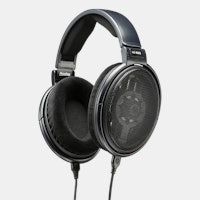
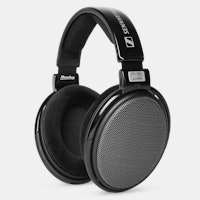
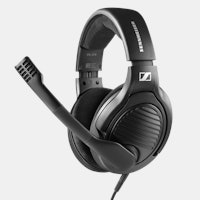
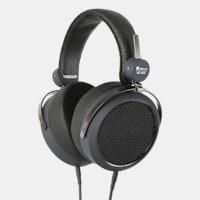
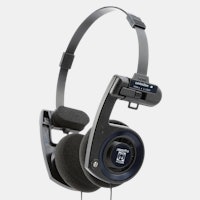
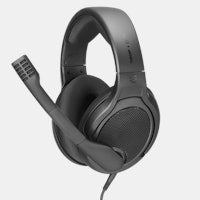
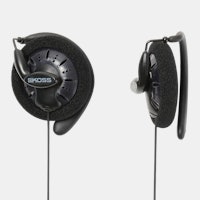
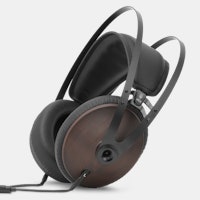
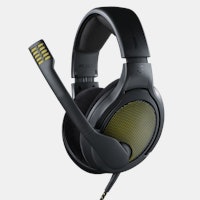
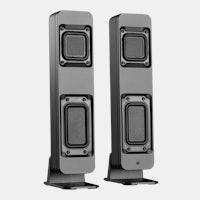
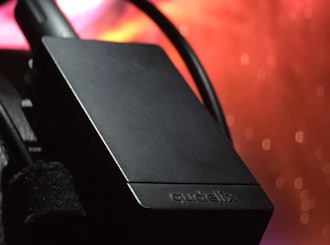
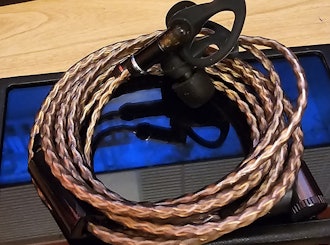
As a 13 year old, funding was the major issue, and Head-Fi's Buy/Sell/Trade section was my solution.
Core Point Generally, enthusiasts do a good job taking care of their stuff, and Audiophile products don't really degrade. These factors produce an environment where secondary markets thrive. Products retain value, the buyers in that market have a good understanding of value, and a large percentage of buyers have also been sellers on that market.
After realizing I could buy a used DT880 for $200, use it for a few months, then reliably sell it for $190, my whole perspective on the hobby changed. Instead of my DT880 representing a $200 cost, now it was $10, all through the magic of reliable secondary market value.
The logical conclusion is that enthusiast products (that don't incur meaningful wear through use) are assets rather than expenses. After realizing this, I stopped buying cheap things and started investing in the "asset level" version of whatever product.
Implications This works great in the sense that I've probably saved a few thousand dollars by avoiding trash quality products, but it makes new hobby exploration difficult.
I look at EDC as an example, seems like a cool community, lots of neat stuff, but I can't think of too many situations where I'd utilize a pocket knife. I did a little reading, found most people recommend getting something cheap, carrying it for a while, and upgrading/abandoning based on much use it gets.
Seems logical, but I don't want to buy a $50 thing that I'll have to toss in a couple months if I decide to upgrade, but it's hard to get over the $200 it'll take to reach the asset level knives.
I think there's cool potential for a solution to this problem, a secondary market, based on trades, geared toward swapping asset level goods of one type, for similarly valuable asset level goods of another type.
Conclusion I've got five headphones at home, all worth ~$500 on the secondary market. I don't want to invest $200 in a knife that I'm not sure I'll find useful, but what if there was some easy way for me to trade one of those ~$500 pairs of headphones for a ~$500 knife? I don't have to shell out any cash, I get to try the new hobby, and I'm trying it at the quality level I'm interested in entering at.
Anyway, these are my thoughts, but what do you think? I'm curious to know how other people see this.